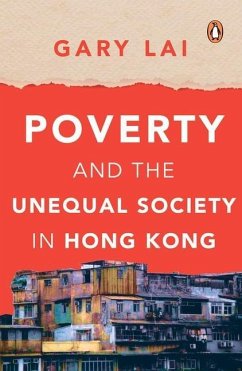
Living in the Margins in Mainland China, Hong Kong and India
Versandkostenfrei!
Versandfertig in 1-2 Wochen
55,99 €
inkl. MwSt.
Weitere Ausgaben:

PAYBACK Punkte
28 °P sammeln!
With a range of case studies from Asia, this book sheds light on empirical realizations of marginality in a globalized context using first-hand original research. In the late 2000s, the financial crisis witnessed the fragility of high levels of market integration and the vulnerability of globalisation. Since then, the world seems to have entered an epoch of anxiety featuring populism with varying degrees of protectionism and nationalism. What is the nature of this populist mood as a backlash against globalisation? How do people feel about it and act upon it? Why should specific intellectual at...
With a range of case studies from Asia, this book sheds light on empirical realizations of marginality in a globalized context using first-hand original research. In the late 2000s, the financial crisis witnessed the fragility of high levels of market integration and the vulnerability of globalisation. Since then, the world seems to have entered an epoch of anxiety featuring populism with varying degrees of protectionism and nationalism. What is the nature of this populist mood as a backlash against globalisation? How do people feel about it and act upon it? Why should specific intellectual attention be paid to the increasingly marginalised by the recent macroscopic structural changes? These are the questions addressed by the contributors of this book, illustrated with specific cases from mainland China, Hong Kong and India, all of which have undergone substantial populist or nationalist movements since 2010. A valuable resource for sociologists looking to understand the impacts of globalization, especially those with a particular interest in Asia.














